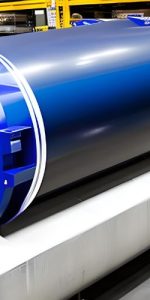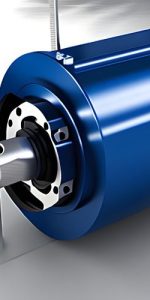How Can the Quality and Dependability of Commercial Motors Be Evaluated?
Increasing energy efficiency is the quickest, cleanest, and cheapest method for obtaining reliable electricity. Motors consume around 46% of the total electricity and 69% of the total energy in the industrial sector. Energy consumption is one of the most serious difficulties faced by many organizations. Poor design and wasteful energy usage must be addressed initially. Poor design and incorrect use are the primary drivers of high energy prices and the inability to fulfil the expanding demand for power. Most motors work between 50 and 100 percent of rated load, while the maximum efficiency is 75% of rated load, and it tends to decline with age. Automatically, electric motor efficiency begins to deteriorate at 50% load.
Four Factors Influencing Motor Performance:
- Transients, imbalance, sags, swells, and harmonics can severely damage a machine or even cause it to malfunction, therefore poor power quality has a direct impact on motor performance.
- When a motor creates rotational force to drive a mechanical load at the rated speed of the spinning shaft, the influence of torque on efficacy and overall performance is observed. The electric motor is dependable since it runs at specified frequency and torque speed. The measurement of torque offers an accurate indicator of the state of an electric motor.
- The predicted performance of the electric motor and its operating conditions: Overloading the motor mechanically strains its internal components, including the connection, bearings, and insulation. This decreases the efficiency of the motor and raises the chance of malfunction or premature failure.
- As a direct result of motor efficiency, collecting baseline data is the first step in predictive and preventative maintenance.
75% of industrial motor failures result in an annual downtime of 1-6 days per facility. After the early warning, 36% of motor failures happened within a day, and 90% occurred within a month. To prevent motor failure and operating problems Regular evaluations, analyses, inspections, and audits may aid in reducing all electrical motor issues and enhancing the motors’ dependability and performance.
Table of Contents

Information on Improving Motor Performance:
Raise the efficiency of an induction motor by 68% over a 53-year period (1960 to 2013). To increase efficiency, minimize losses in electrical induction motors over the course of a year. Induction motors’ energy efficiency has increased over time (data of 45 kW, 4p design motor). CareLabs assesses the dependability and performance of electric motors for a range of commercial buildings and industries. We identify and examine issues to assist you in reducing losses and enhancing motor function. Our objective as experienced and talented specialists is to give superior services to our clients.



Advantages of Using Carelabs' Services:
- Always accepts responsibility for our work
- Excellent client service.
- Instantaneous replies to your chats.
- Our staff is enhanced by the presence of a qualified and dependable electrician.
- A familiarity with Chinese standards.
- Set a convenient time for the appointment.
- To guarantee your complete pleasure, offer a digital report with all pertinent information.









Techniques for Conducting Audits of Electrical Motor Efficiency:
- Before the audit begins, we collect all site-related paperwork for research reasons.
- Create a one-line diagram and an inspection checklist to progress your position.
- Continue the audit using the inspection checklist for electrical motors.
- After completing the checklist, technicians inspect and test electrical motors.
- Compile the inspection results for the electric motors.
- Verify that there are no power quality or load flow issues.
- Our specialist will ensure answers to any challenges that may arise.
- Verify that the motor meets national efficiency criteria.
- Produce a digital report with recommendations on safe work practices.
CareLabs performs motor acceleration analysis to verify the motor functions properly under maximum load situations and boosts productivity (by mitigating the losses). Reducing motor losses improves motor dependability. In all major Chinese towns, including Beijing, Shanghai, Guangzhou, and Shenzhen, we provide motor start analysis services. Contact CareLabs for extra information and a quotation on evaluating the performance of commercial electrical motors.
RELATED NEWS








Coordination


RELATED NEWS











